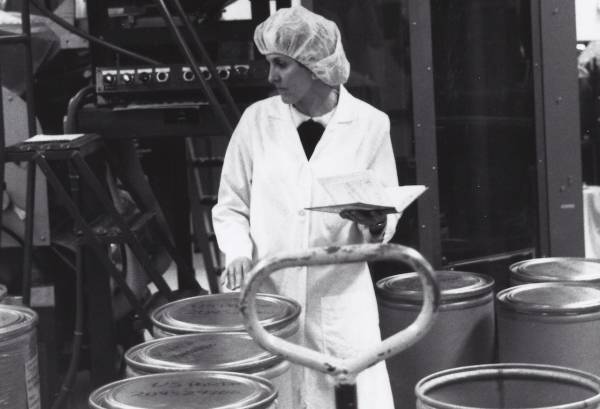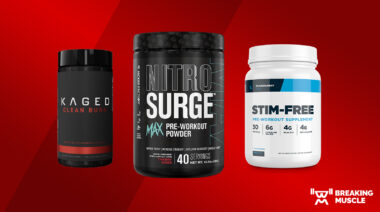At some point, most of us have taken a dietary supplement. The industry for these products is huge, and with it comes controversy. There is a lot of great research on some supplements, and a select few have been widely accepted as safe and effective.
But with so much money involved, there are many ways the consumer can be tricked into buying something they may not need. I love seeing Dr. Oz getting shamed in front of Congress as much as anyone, but people like him are only part of the problem.
Recently, reports came out that New York State tested various dietary supplements from Wal-Mart, GNC, Target, and Walgreens. They found many of the store brand products contained little to none of the actual ingredient advertised.
“Many people falsely believe the government has our back when it comes to regulating supplements. The truth is, the industry is as controlled as the Wild West.”
So, you’ve done the research and decided a certain supplement is something to add to your regimen. How do you know what you are buying is actually in the bottle? Let’s take a look at how to navigate the industry to find a product worthy of your hard-earned money.
We Live in the Wild West
Many people falsely believe the government has our back when it comes to regulating supplements. The truth is, the industry is as controlled as the Wild West.
In 1994, the Dietary Supplement Health and Education Act was enacted. This bill gave free reign to the supplement industry. It treated these products as food, not drugs. Companies do not have to prove that a product is safe and effective before it can go to the market. If serious adverse effects are reported, the Food and Drug Administration (FDA) has to step in and investigate. So, we, the consumers, are basically lab rats who pay a lot of money to be in a study.
The government does not have the resources in place to test products and enforce penalties for not putting the correct amount of product in a bottle. Do we even want the government to do this? This is a difficult question to answer, but my opinion is no. The cost of testing supplements can be extremely high. This is especially true given how many products and brands exist today. This cost would be passed on to the taxpayers. If the supplement companies are to pay for the testing, their production costs will go up.

An FDA drug specialist examines bulk drug containers for proper labeling and adequate testing.
Vote With Your Dollar
The one way to protect ourselves from poor products and high costs is to vote with our dollar. Third party testing can help keep companies accountable if we use their results to choose not to buy products that do not meet certain standards. Two places where a regular consumer can find information on tested products are the Public Health and Safety Organization (NSF) and Consumer Lab.
- NSF is an organization that measures good manufacturing processes. For a company to be certified it has to be inspected and every element of the manufacturing process must be up to par. NSF can certify the producer of the raw ingredient, the retailer, and the packagers. This is a great place to start when looking for a reputable company.
- Consumer Lab is my go-to source for tested supplements. They pull products off the shelf and use their laboratory to dig in and rigorously test everything. The interesting part is that different products require different types of testing.
This brings us back to the recent report about GNC and others having next to nothing in their bottles. An argument is being made that the test used, DNA barcoding, was inappropriate. While the issue of test relevance is beyond this article, the point is that there isn’t one laboratory test that can look at every product. Plant extracts can be different from the entire plant. Liquid supplements are tested differently from powders. Consumer Lab lists on their site the different tests they use by product category.
The Real Bottom Line
If you take supplements, you are certainly aware of the high cost. Before you spend your money, check out the Health and Safety Organization or Consumer Lab (they have a small subscription fee). Ideally, you can find a product that matches up with the results listed on both sites.
“While the issue of test relevance is beyond this article, the point is that there isn’t one laboratory test that can look at every product.”
By voting with our dollar, we can keep good companies in business and weed out ones that may not have the highest standards.
You Might Also Like:
- Demystifying Supplements: The 4 Daily Supplements You Need
- Why It’s Time to Regulate the Supplement Industry
- The 5 Supplements That Are Worth Your Money
- What’s New on Breaking Muscle Today
References:
1. Collins, RA, and RH Cruickshank. “The 7 Deadly Sins of DNA barcoding.” Molecular Ecology Resources (2012). Accessed February 8, 2015. doi: 10.1111/1755-0998.12046
2. Business Wire, “GNC Refutes New York State Attorney General’s Claims in Full and Robust Response,” Febuary 9, 2015.
3. New York Times, “New York Attorney General Targets Supplements at Major Retailers.” Last Updated February 3, 2015.
Photo 1 courtesy of Shutterstock.
Photo 2 by the U.S. Food and Drug Administration [Public domain], via Wikimedia Commons.






